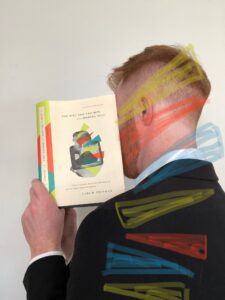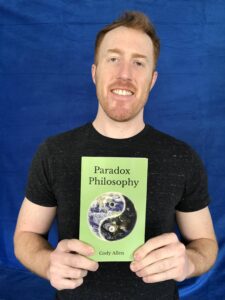 In today’s modern culture, we have come to think about ourselves differently than ever before. Society is more psychological, secular, and sexual than in any other time period from our history. It has been a slow progress of development going back hundreds of years. Our author investigates many contributing philosophers like Nietzsche, Marx, Rousseau and Freud, to name a few. Not only have ideas shaped us, so have modern advancements in science and technology.
In today’s modern culture, we have come to think about ourselves differently than ever before. Society is more psychological, secular, and sexual than in any other time period from our history. It has been a slow progress of development going back hundreds of years. Our author investigates many contributing philosophers like Nietzsche, Marx, Rousseau and Freud, to name a few. Not only have ideas shaped us, so have modern advancements in science and technology.
It is no secret that we have become a society of psychological beings. For previous generations, job satisfaction was “empirical, outwardly directed, and unrelated” to one’s psychological state: if you had a job that could provide for your family, you were happy (or, if you were a woman, if you had healthy children and a happy husband, you were likewise happy). For our generation, “the issue of feeling is central.” We need to feel good and valued in the things we do, otherwise we are unhappy and depressed. Self-expression and individual psychological well-being are now at the heart of what it means to be human.
When societies were religious, and we all believed in a God greater than ourselves, we all shared in a system of ethics that guided social behavior. Having an affair was wrong because God decreed it, for example. Now that society has become more secular, we no longer have a shared system of ethics and morals. We used to tell children not to steal because it was a sin in the eyes of God. Now, when our child steals, we still teach them that the behavior is wrong, but there is no further justification for why? The answer all too often given by parents is: because I said so. This is what Nietzsche meant when he famously declared that “God is dead,” because without God, what barometer do we humans have for what is good and what is evil? It has become necessary for us to create a system of ethics ourselves, but without the structure once afforded to us by organized religion, this has been a tough challenge. In a psychological society such as our own, “the only moral criterion that can be applied to behavior is whether it conduces to the feeling of well-being in the individuals concerned.” Ethics has become a function of feeling.
Another development of our modern society is that everything has become sexualized. A major catalyst for this was the invention of modern birth control, something that gave women control over their bodily reproduction and unlocked them to discover more potential in their lives. This was undoubtedly a great gift to women, and yet, where has it ultimately led us? Marriage rates have been declining while the number of children raised by single-parents have been increasing. Sex used to be something sacred, something that society viewed as a private enterprise between two adults. Our modern view of it, however, has become the inverse, as we now view sexual relationships as recreational and fun. Sex is on display everywhere in our culture, from movies and music to advertisements selling cars and hamburgers. Children are exposed to sexual themes at younger and younger ages, something that has become very controversial for parents. The great psychoanalyst Sigmund Freud also contributed to our modern sexualization when he published his discovery that “sexual repression was central to the authority relationship that existed between parent and child.”
These culture advancements have all contributed to the changing way we define our identities, the central theme of this book. While yes, all things change as society and culture progress over time, the recent changes in the ways we identify ourselves are newly important: it has transitioned from external to internal. Our identities used to be in relation to others, for example I am the child of Barbara Allen, a waiter at The Cheesecake Factory, and a producer of several albums of hip-hop music. More recently, however, we have began to identify ourselves by our gender and our sexual orientation. He/him, she/her, and they/them; heterosexual/homosexual/bisexual and monogamous/polyamorous.
“If the inner psychological life of the individual is sovereign,” our author contends, “then identity becomes as potentially unlimited as the human imagination.” In the United States, the political Right contends that there are only two genders, man and women. The political Left, on the other hand, now believes that gender is a spectrum and is not constrained by numericals. The Right is holding tightly to the past, while the Left has gone too far creating something new. Perhaps we could all agree on three: man, woman, and, for everybody else somewhere in the middle, trans?
While secularization and sexualization have been liberating to many, there is an inherent problem with identity becoming something internal: it makes it subjective. This is also the case for our collective sense of ethics: things that used to be objectively good and bad have now moved to the subjective realm of interpretation. This makes it difficult to agree upon collective ideas, fracturing society and creating cultural chaos. The freedom of speech, once a paragon of liberal democracies, has become damaging, because “words become potential weapons.”
While the social scaffolding we once had was at times constraining, it also provided structure. We should be wary of tearing this structure down, because societies need structure. Without it, we fall into chaos, and the farther down this rabbit hole we go, where everything in life is internalized and subjective, the more we invite this chaos in.


